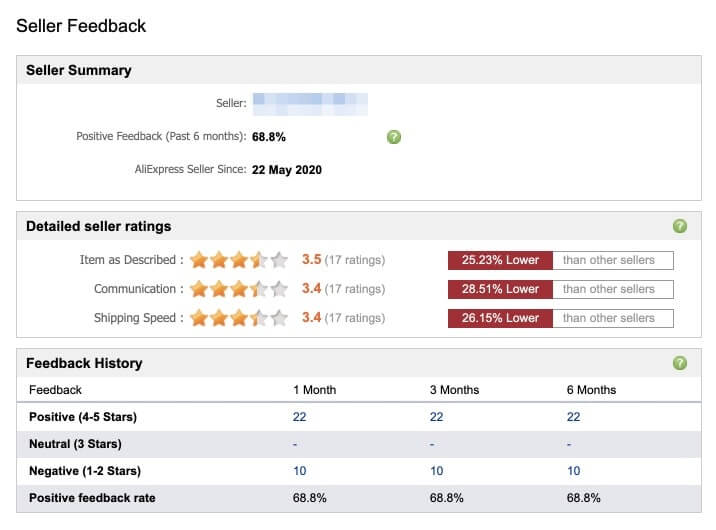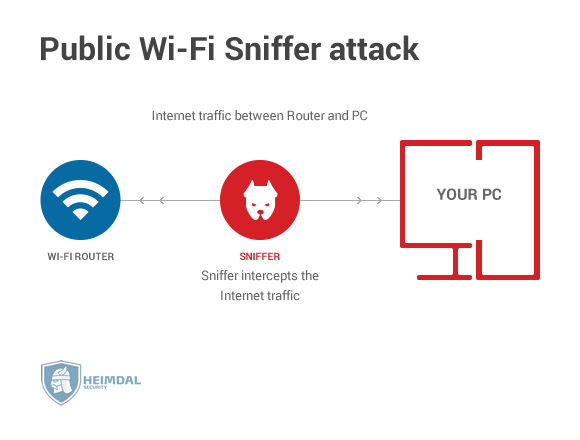Contents:
Is AliExpress Safe? A Brief History of Online Shopping
According to ODM World, online shopping refers to a “unique form of electronic commerce (known as eCommerce) which connects customers and sellers on all corners of the internet with the use of a web browser. […] there are two forms an online shop could take. First is as a B2C store which connects business-to-customers. Second is as a B2B online store which connects business-to-business.”
- It all started in 1979, with the English inventor Michael Aldrich. He developed the system called Videotex, that allowed people to generate a shopping list on their TV screens.
- The first web browser appears in 1990. The World Wide Web allowed us to have an interconnected online market place.
- In 1994, Netscape developed an essential encryption-based internet security protocol – SSL (Secure Sockets Layer), which makes information (very private one, like credit card details) interception very difficult or impossible.
- Amazon is launched by Jeff Bezos in 1995, then eBay, founded by Pierre Omidyar. In 1999 – Alibaba.com is launched by Jack Ma.
- In 1998, the online payment system PayPal is launched.
- In 2000, Google launches Adwords, “an advertising service that allows sellers to place adverts in Google search results related to viewers’ search preference. In other words, Google connected sellers to buyers on a greater scale.”
- In 2006, Paypal offers us the possibility to exchange money and buy whatever we need directly from our cell phones.
- By 2020, the Internet has evolved into a virtual shopping mall. In this pandemic year, shopping is made mostly online, not only out of convenience but also out of necessity, since many areas on the Globe were and still are under quarantine and the restrictions require the minimisation of population mobility.
Is AliExpress Safe? AliExpress History and Functioning
As Alitools notes, “AliExpress is an online retail marketplace based in China. It doesn’t sell anything directly but rather connects buyers and sellers and facilitates small businesses to sell to international customers. The service features products from various suppliers across the world, though most retailers are Chinese.” AliExpress was launched ten years ago by Alibaba Group, a company with annual revenue of more than $50 billion. The website shows available options from multiple sellers and the categories include clothing, sports goods, consumer electronics, beauty and health products etc. AliExpress has no minimum order and can ship everywhere in the world except for mainland China, and the pay can be done through most international payment methods – credit/debit card, bank transfer, PayPal etc. All you have to do to place an order on AliExpress is to create a free account and search for the products you need, which would probably be at a very competitive price. This happens because:
For both AliExpress and the seller, it’s beneficial to get more business and sell more products. There is wild competition, so everyone is desperately trying to catch buyers’ attention. Most of the sellers offer products that have been produced and stored in China. China has a strong business ecosystem, low taxes and duties, and competitive currency practices, which keeps the cost of production low. The website uses a direct-to-consumer model, which cuts out the middlemen.
Is AliExpress Safe? AliExpress Pro’s and Con’s
When trying to answer the question “Is AliExpress safe?” we cannot move on without having a look at the advantages and disadvantages of using this platform. They are as follows:
Advantages
- AliExpress products have very affordable prices, possibly lower than anywhere else.
- The site has no minimum order requirements, so buyers can enjoy a lower initial cost.
- A large number of sellers and products.
- A good buyer protection program (which will be discussed in the next section of this article).
Disadvantages
- Long shipping time – many sellers offer free shipping, but the waiting time is of 1-30 days, sometimes even 60.
- Returns or exchanges can be difficult – all the products from AliExpress come from China, returning a product or changing it might turn into a real adventure.
- False advertisement – it is not impossible for you to discover, after weeks of waiting for your order to arrive, that the products you receive are not exactly like the ones presented on the website.
- Very little quality control, since anyone in China can sell.
Is AliExpress Safe? Buyer Protection
Is AliExpress safe? Let us now have a look at all the aspects that suggest it is:
- AliExpress follows a standard e-commerce model – as Alitools says, “as a buyer, you don’t have to do anything extra. As long as your purchase is made directly through AliExpress, you will be protected no matter what you buy on the platform. […] When you buy an item […], you receive a tracking number, track your goods, and have an option to get a full refund if items arrive damaged, late, or don’t arrive at all.”
- AliExpress’s parent company, Alibaba Group, also has the security service Alibaba Cloud, which offers high-end AI technology for security identification and risk analysis.
- AliExpress has a Buyer Protection policy. This guarantees:
A full refund if the order doesn’t arrive. If an order doesn’t show up or is delayed beyond the seller’s estimated delivery time frame, customers can apply for a full refund. If the refund is approved, customers will receive money back within 15 days. A partial refund or a full refund for inaccurate listings. If the product is not as described in the product listing or is not delivered as promised, two choices are presented. Customers can either return it for a full refund or keep it and receive a partial refund.
You can find more details about how the Buyer Protection works here.
Is Aliexpress Safe? Cybersecurity Advice
Although the company does take security measures in place to protect its buyers, it’s always a good idea to pay some extra attention in order to avoid any nuisances. Here’s what you can do:
Read reviews
In the era of online shopping, buying something without first making some research and reviews reading has become very similar to gambling. Make sure you also have a look at the Seller Feedback section.

Avoid extremely low prices for otherwise expensive products
Even if you have the option to return products, buying, for example, a $3000 high-end luxury watch for $500 or similar might not be a good idea. Keep an eye open and avoid products with incredibly low prices.
Always check seller’s reliability
Besides the Seller Feedback section, get used to checking where they’re based and if the products’ photographies and descriptions seem accurate and reliable. The photos should be high-quality and from multiple angles, and the descriptions not too vague.
Check seller’s guarantees
As Alitools says, “Genuine sellers offer different kinds of guarantees, such as on-time delivery, money-back guarantee, domestic returns, and guaranteed genuine. They don’t necessarily apply to a seller’s entire catalog, so check carefully for the item you’re about to purchase.”
Make sure your browser, antivirus, and operating system are up to date
Out-of-date software is the access point of a high percentage of malware infections, so you really do not want to skip updates, especially when it comes to browsers and online shopping. An updated browser will help secure the cookies and cache and prevent data leakage. For home use, you can try our Heimdal™ Premium Security Home, which brings next-gen threat prevention of the most advanced malware, ransomware, and phishing threats, automatically update your apps, closing security holes in your system, and installs your favorite software securely and conveniently. For your corporate needs, you can benefit both from a patching solution and a powerful antivirus if you choose our Endpoint Security Suite. Its Heimdal™ Patch & Asset Management component will automatically install updates based on your configured policies, without the need for manual input, as soon as 3rd party vendors release new patches. The antivirus offers signature-based code scanning to monitor the activity of your organization’s files in order to protect your endpoints against malware, ransomware, APTs, and other types of threats. You can perform file scans in real-time, as a permanently active process, or you can run scheduled or on-demand scans for your endpoints to detect any suspicious activity.
Beware of phishing emails
Phishing can be defined as “a malicious technique used by cybercriminals to gather sensitive information (credit card data, usernames and passwords, etc.) from users. The attackers pretend to be a trustworthy entity to bait the victims into trusting them and revealing their confidential data. The data gathered through phishing can be used for financial theft, identity theft, to gain unauthorized access to the victim’s accounts or to accounts they have access to, to blackmail the victim, and more.” You can find more information on how fishing works and how it can be avoided in one of our previously published articles. If you want to protect your business email, we can recommend you to try our Heimdal™ Email Security, which can also help you avoid malware, ransomware, and all type of spam emails. Heimdal® Email Security
Try to buy from the mobile app – but not while connected to a public Wi-Fi network!
Mobile apps can be considered safer than web applications when it comes to online shopping, since “malicious hackers need to create specific attacks for specific apps”. You can read more on this topic here. Regarding the advice to avoid online shopping when connected to a public Wi-Fi network, you should know that hackers might use Wi-Fi sniffers (“a sniffer is a tool used to monitor traffic over a network. It can be used legitimately, to detect issues with the data flow. But it can also be used by malicious actors, to harvest data that are transmitted over a network.”) and other methods to intercept almost all the data that goes through the router – emails, passwords, addresses, browsing history, and even credit card data. More information on how to stay safe if you still have to connect to a public Wi-Fi, here.

Is AliExpress Safe? Wrapping Up
Is AliExpress safe? After sharing all this information with you, I can only put it like this: yes, AliExpress is safe as long as you make sure you take all the extra security measures needed when you shop online. Of course, if you want to order something from AliExpress, it would be nice to consider if it’s really worth waiting 30-60 days for your products to arrive. However you choose to proceed as regarding the use Aliexpress, please remember that Heimdal™ Security always has your back and that our team is here to help you protect your home and your company and to create a cybersecurity culture to the benefit of anyone who wants to learn more about it. Drop a line below if you have any comments, questions or suggestions – we are all ears and can’t wait to hear your opinion!










 Network Security
Network Security
 Vulnerability Management
Vulnerability Management
 Privileged Access Management
Privileged Access Management  Endpoint Security
Endpoint Security
 Threat Hunting
Threat Hunting
 Unified Endpoint Management
Unified Endpoint Management
 Email & Collaboration Security
Email & Collaboration Security









